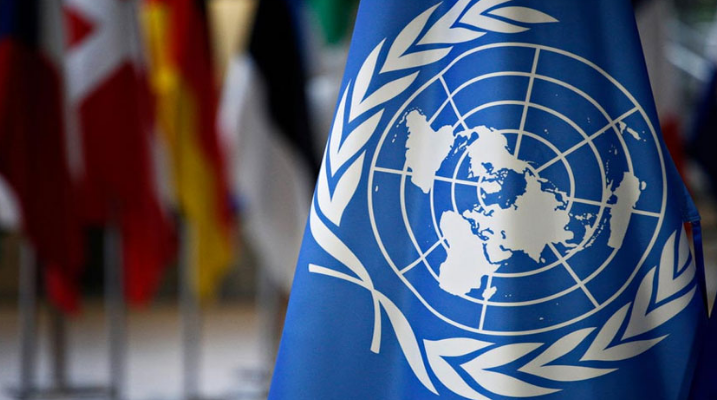United Nations (Web Desk/Agencies): A United Nations (UN) team will go to Bangladesh next week to investigate “serious human rights violations” committed during the upheaval that toppled Prime Minister Sheikh Hasina earlier this month, UN Deputy Spokesperson Farhan Haq said on Friday.
Student protests that began peacefully in early July soon turned violent when Sheikh Hasina’s followers and security forces clashed with demonstrators and cracked down on rallies, leaving at least 300 people dead and thousands injured. Authorities also arrested more than 11,000 people, mostly student activists.
The violent uprising that forced Bangladesh’s longest-serving premier to resign and flee the country brought political transition, with Nobel-winning economist Muhammad Yunus leading the new interim government as chief adviser.
Farhan Haq told reporters that UN High Commissioner for Human Rights Volker Turk and Yunus, the Bangladesh interim leader, discussed a “comprehensive range of support that the UN Human Rights Office could provide to the interim government and the transition, including accountability issues.”
Meanwhile, the UN High Commissioner for Human Rights said that the political transition underway in Bangladesh represents an historic opportunity to ensure governance is anchored in human rights, inclusivity and the rule of law.
Turk also stressed the need for accountability for rights violations and violence connected to anti-government protests that rocked the country in recent weeks, prompting Prime Minister Sheikh Hasina to resign and flee to India.
The protests, which began in mid-June, were triggered by the reinstatement of a controversial quota system for civil service jobs.
According to the report, there are strong indications, warranting further independent investigation, that the security forces used unnecessary and disproportionate force in their response to the situation.
It went on to say that additional alleged violations also warrant thorough, impartial and transparent investigations, including extrajudicial killings, arbitrary arrests and detention, enforced disappearances, torture and ill-treatment, and severe restrictions on the freedoms of expression and peaceful assembly.
Following Hasina government’s resignation on August 5, there were also reports of looting, arson and attacks on members of religious minorities in Bangladesh, as well as reprisals against and revenge killings of members of the former ruling party and police.
On August 15, mobs armed with bamboo sticks, iron rods and pipes reportedly assaulted supporters of the former premier. Journalists were also reportedly attacked and threatened, preventing them from filming at the scenes.
The report stressed the importance of rapidly restoring law and order, and the need for effective measures to prevent further loss of life, violence and acts of reprisals.
Recommendations include ensuring that law enforcement agencies receive clear instructions and training on the use of force, in line with international human rights standards.
The UN rights chief has welcomed the initiative by various student organizations, faith leaders and others, who are forming groups to protect minorities and religious sites belonging to minority communities.
Turk called for all persons responsible for human rights violations, including those who used or ordered the unnecessary and disproportionate use of force, to be held to account. Victims must be provided reparations and effective remedies, he added.
He welcomed the release of thousands of detainees and longer-term political prisoners, including some victims of enforced disappearance, and urged the release of all those arbitrarily detained.
The human rights report also called for a systematic approach to vetting for any appointments and dismissals to the judiciary, security sector and other institutions.


